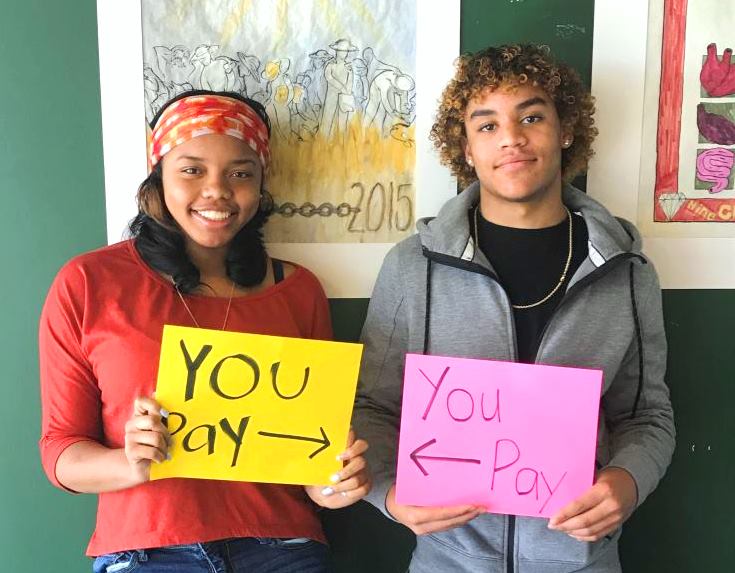Battle of the Sexes: Who Should Pay for Dates?
Dating Dilemma: Junior Cianne Whitehead and sophomore Donovan Earle both have their opinions about which gender should pay for dates.
In times of modern romance a pressing issue has occurred which is causing the ultimate gender divide: Who should pay for dates?
In this era of gender equality, massive strides have been made to allow for women to walk alongside men in all fields, whether on the battlefront or in the office. This is by all means wonderful. However, men have been pleading “equality” when it comes to paying for dates for decades now, but one is left to wonder — is chivalry really a prime example of inequality in our modern world?
Money is a touchy subject in relationships. Although it’s reasonable for all financial sacrifices to not be one-sided in a married or even long-term relationship, when it comes to dating, especially first-time dates, it is apparent most women expect men to pay. But what do North Atlanta Warriors, the youth of the nation, have to say about this?
Junior Chris Peters thinks money should be a 50-50 split. “After the first date, I would really appreciate if my girl and I took turns, you know? Like, it’s different if she can’t pay for it or anything, but if she can I don’t see why not,” Peters said.
Senior Shemar Williams is one who sides with Peters in the notion that things would be more equal. “I don’t think men should have to pay all the time. In fact, I think it’s a little sexist. I’m not made of money,” Williams said.
Most NAHS men students had the same sentiments, however the women were more divided on this issue than men. While the men of North Atlanta seem to be alright paying at last some of the time, women’s opinions vary across the board.
“I think whoever asked the other out initially should pay, and then it should switch off from there, given the first date goes well,” junior Sarah Hetzel said.
Junior Anna Shoup is one who falls on tradition. “I don’t mind paying, but I think it’s custom for the man to pay most of the time,” she said.
Tradition dictates that young women expect men to pay for most, or even all, dates, especially since the young men are oftentimes the ones courting them. However, it is reasonable to reflect on the changing tides of societal expectations and the implications those come with. If a man wants a woman to pay, it is not necessarily because he does not like or respect her, it might just be her turn.
It seems that both genders, at least here at North Atlanta, agree that paying for dates should switch off at least sometimes. Perhaps men should be more chivalrous, and maybe women could be more understanding of limited financial streams in high school. Dating is hard enough without considering money, and it’s even harder factoring in the reality that men and women are on majorly different wavelengths when it comes to expectations. Then again, maybe dating is a concept only built for people who are able to pay for outings and such. But there’s this: if you really like someone, money shouldn’t matter. After all, the Beatles said it best: “All You Need is Love.”












